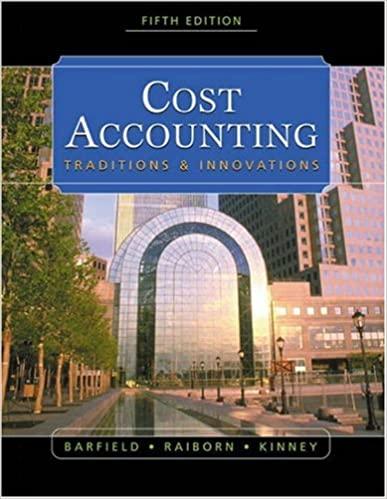41. (Joint cost allocation; scrap) Washington Filaments produces cloth products for hotels. The company buys the fabric
Question:
41. (Joint cost allocation; scrap) Washington Filaments produces cloth products for hotels. The company buys the fabric in 60-inch-wide bolts. In the first process, the fabric is set up, cut, and separated into pieces. Setup can either be for robes and bath towels or for hand towels and washcloths.
During July, the company set up and cut 3,000 robes and 6,000 bath towels.
Because of the irregular pattern of the robes, scrap is produced in the process and is sold to various institutions (prisons, hospitals, etc.) for rags at
$1.25 per pound. July production and cost data for Washington Filaments are as follows:
Fabric used, 12,500 feet at $1.91 per foot $23,875 Labor, joint process $6,000 Overhead, joint process $5,900 Pounds of scrap produced 1,800 Washington Filaments assigns the joint processing cost to the robes and towels based on approximated net realizable value at split-off. The final selling prices for robes and bath towels are $20 and $11 per unit, respectively. Costs after split-off are $8.40 and $2.30, respectively, for the robes and the towels.
The selling price of the scrap is treated as a reduction of joint cost.
a. Determine the joint cost to be allocated to the joint products for July.
b. How much joint cost is allocated to the robes in July? To the bath towels?
Prepare the journal entry necessary at the point of split-off.
c. What amount of cost for robes is transferred to Finished Goods Inventory for July? What amount of cost for towels is transferred to Finished Goods Inventory for July?
Step by Step Answer:

Cost Accounting Traditions And Innovations
ISBN: 9780324180909
5th Edition
Authors: Jesse T. Barfield, Cecily A. Raiborn, Michael R. Kinney





